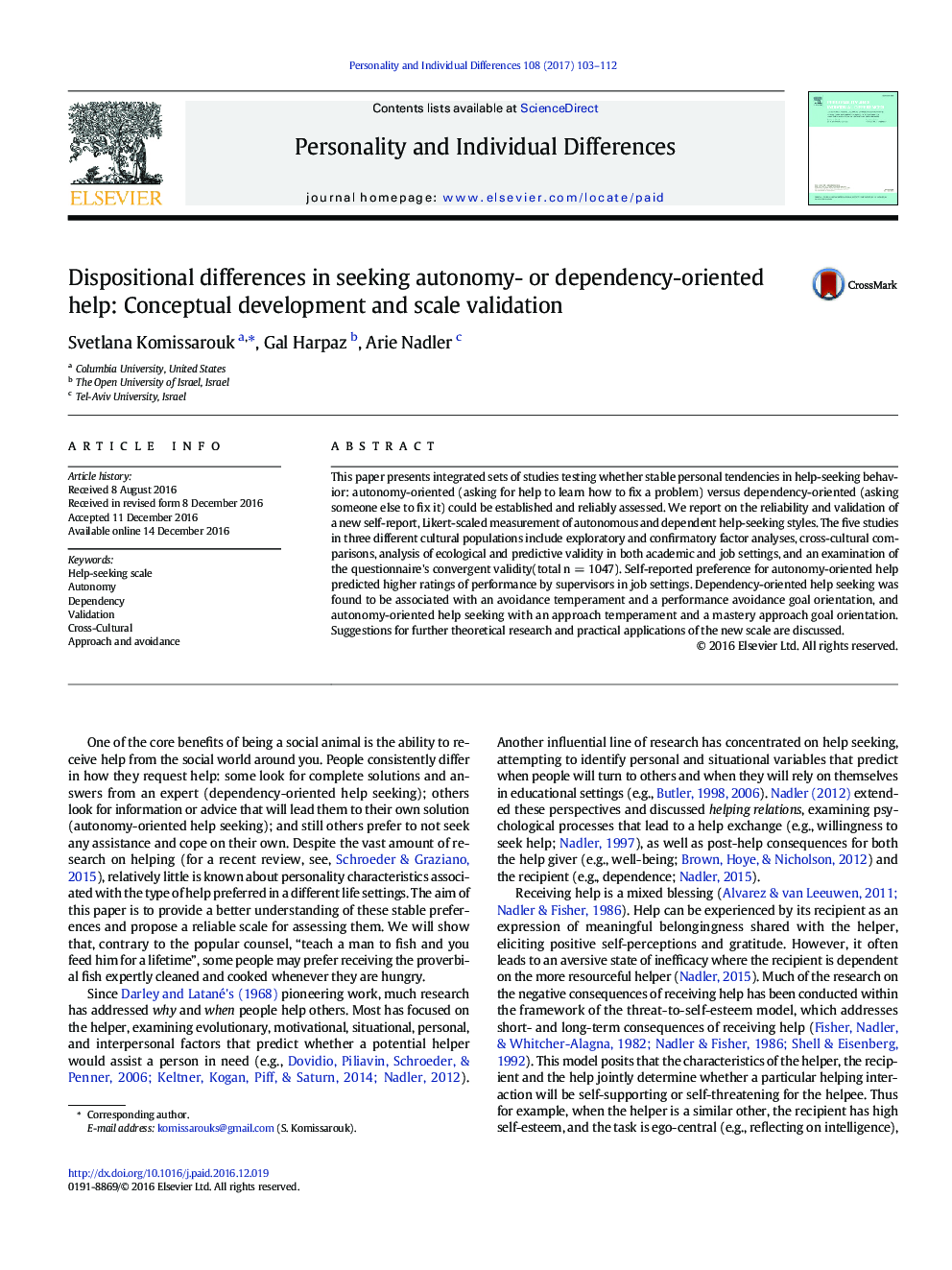| Article ID | Journal | Published Year | Pages | File Type |
|---|---|---|---|---|
| 5036098 | Personality and Individual Differences | 2017 | 10 Pages |
â¢Dependency/autonomy-orientations in help-seeking can be assessed on a scale.â¢These help-seeking styles are different between cultures.â¢Autonomy (vs dependency)-oriented style is rated higher in job settings.â¢Dependent help is associated with avoidant performance goals and temperament.â¢Autonomous help is associated with approach temperament and mastery approach goals.
This paper presents integrated sets of studies testing whether stable personal tendencies in help-seeking behavior: autonomy-oriented (asking for help to learn how to fix a problem) versus dependency-oriented (asking someone else to fix it) could be established and reliably assessed. We report on the reliability and validation of a new self-report, Likert-scaled measurement of autonomous and dependent help-seeking styles. The five studies in three different cultural populations include exploratory and confirmatory factor analyses, cross-cultural comparisons, analysis of ecological and predictive validity in both academic and job settings, and an examination of the questionnaire's convergent validity(total n = 1047). Self-reported preference for autonomy-oriented help predicted higher ratings of performance by supervisors in job settings. Dependency-oriented help seeking was found to be associated with an avoidance temperament and a performance avoidance goal orientation, and autonomy-oriented help seeking with an approach temperament and a mastery approach goal orientation. Suggestions for further theoretical research and practical applications of the new scale are discussed.
